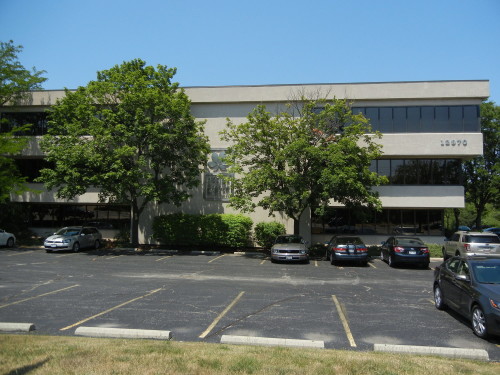
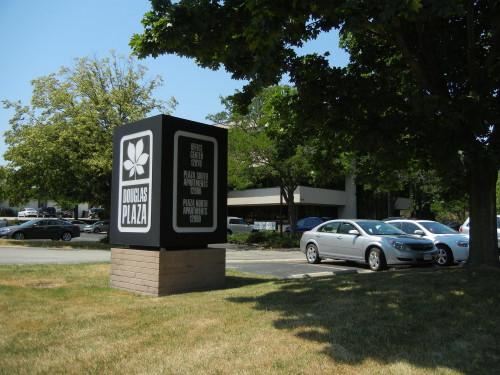
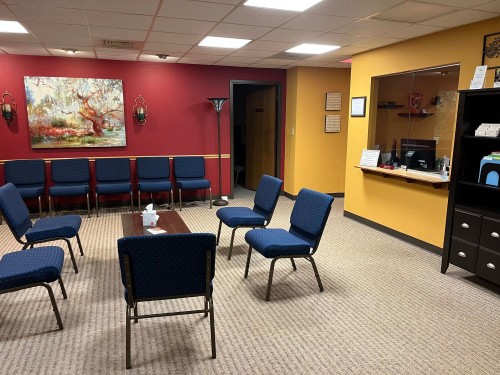



Red Oak Counseling Elm Grove
Treatment Focus
This center treats mental health conditions and co-occurring substance use. You receive collaborative, individualized treatment that addresses both issues for whole-person healing.
Primary Level of Care
Delivers regular one-on-one sessions focused on emotional support, coping strategies, and goal-setting, fostering long-term healing and personal development in an outpatient setting.
This provider hasn't verified their profile's information. Are you the owner of this center? Claim your listing to better manage your presence on Recovery.com.
Treatment Focus
This center treats mental health conditions and co-occurring substance use. You receive collaborative, individualized treatment that addresses both issues for whole-person healing.
Primary Level of Care
Delivers regular one-on-one sessions focused on emotional support, coping strategies, and goal-setting, fostering long-term healing and personal development in an outpatient setting.
Provider's Policy
We are in network with most major insurance companies. Please call us if you do not see your insurance company listed.
Red Oak Counseling Elm Grove
Red Oak Counseling Elm Grove
About Red Oak Counseling Elm Grove
This counseling clinic in Elm Grove is one of 5 clinics throughout the greater Milwaukee area. Red Oak is a clinic that offers a variety of counseling services for individuals, couples, families and groups that are seeking treatment for mental health concerns and substance use disorders. Their large team of counselors, social workers, substance use counselors, psychiatrists and medical doctors are trained in a range of evidence-based therapies and customize their therapeutic approach depending on the needs of the client.
What Do They Treat?
The team at Red Oak offers services for attention deficit/hyperactivity disorder (ADD/ADHD), life changes, grief, anger, anxiety, depression, chronic pain, work concerns, gender identity, self-esteem and stress management. They also offer counseling services for those who are struggling with drug and alcohol use disorders. If a higher level of care is needed, the counselors will encourage a different option after learning about the client’s individual situation and needs. Red Oak also offers psychological testing at their Milwaukee location in order to determine accurate mental health diagnoses for their clients.
For clients who come to counseling to uncover and process trauma, Red Oak counselors offer many trauma-informed therapies including eye movement therapy (EMDR), brainspotting and crisis intervention. For clients who desire a Christian counselor, Red Oak offers counseling from a Christian perspective. They also provide treatment for those struggling with eating disorders and body image.
Innovative and Effective Therapies
For clients with medication-resistant depression, Red Oak offers a version of Ketamine called Spravato. It is a nasal spray that offers precise dosing and works on a completely different neuro-chemical system than traditional anti-depression medications. They also offer transcranial magnetic stimulation (TMS) to treat a variety of mental health diagnoses. Red Oak claims that over the course of 4-6 weeks, many clients can see improvement in their functioning and emotions after TMS treatment.

Center Overview
Treatment Focus
This center treats mental health conditions and co-occurring substance use. You receive collaborative, individualized treatment that addresses both issues for whole-person healing.
Insurance Accepted
Cash Pay Rates
Estimated Cash Pay Rate
Center pricing can vary based on program and length of stay. Contact the center for more information. Recovery.com strives for price transparency so you can make an informed decision.
Meet Your Care Team

Amy Dice
PMHNP

Claire Maas
MSW, LCSW

Judy Bertoni
CSAC, ICS, LPC
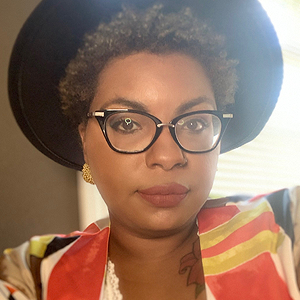
Kadeitra Winters-Wallace
M.S., LPC

Kate Meine
DNP, PMHNP
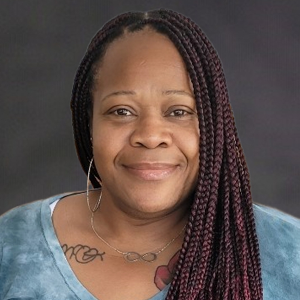
Latoya McClinton
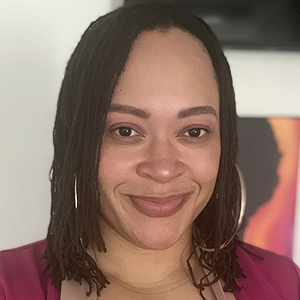
Lauren Todd
LPC
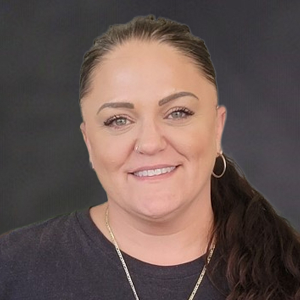
Linnea Olson
RN
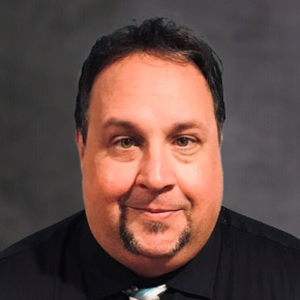
Michael Nicholson
LPC, CSAC, ICS

Samantha Lueloff
LPC
Levels of Care




Your Care Options
Specializations
Eating Disorders
An eating disorder is a long-term pattern of unhealthy behavior relating to food. Most people with eating disorders have a distorted self-image.
Ketamine Therapy
Ketamine therapy uses ketamine, a dissociative anesthetic, to provide rapid relief for severe depression, trauma symptoms, and other mental health conditions.
Who We Treat
Adolescents
Teens receive the treatment they need for mental health disorders and addiction, with the added support of educational and vocational services.
Men and Women
Men and women attend treatment for addiction in a co-ed setting, going to therapy groups together to share experiences, struggles, and successes.
Approaches
Spiritual Emphasis
Spirituality connects patients to a higher power and helps strengthen their recovery, hope, and compliance with other treatment modalities.
Evidence-Based
A combination of scientifically rooted therapies and treatments make up evidence-based care, defined by their measured and proven results.
Individual Treatment
Individual care meets the needs of each patient, using personalized treatment to provide them the most relevant care and greatest chance of success.
Personalized Treatment
The specific needs, histories, and conditions of individual patients receive personalized, highly relevant care throughout their recovery journey.
Therapies
1-on-1 Counseling
Patient and therapist meet 1-on-1 to work through difficult emotions and behavioral challenges in a personal, private setting.
Trauma-Specific Therapy
This form of talk therapy addresses any childhood trauma at the root of a patient's current diagnosis.
Transcranial Magnetic Stimulation
Localized magnetic pulses stimulate areas of the brain to increase brain activity and reduce abnormal functions.
Couples Counseling
Partners work to improve their communication patterns, using advice from their therapist to better their relationship and make healthy changes.
Eye Movement Therapy (EMDR)
Lateral, guided eye movements help reduce the emotional reactions of retelling and reprocessing trauma, allowing intense feelings to dissipate.
Family Therapy
Family therapy addresses group dynamics within a family system, with a focus on improving communication and interrupting unhealthy relationship patterns.
Life Skills
Teaching life skills like cooking, cleaning, clear communication, and even basic math provides a strong foundation for continued recovery.
Psychoeducation
This method combines treatment with education, teaching patients about different paths toward recovery. This empowers them to make more effective decisions.
Conditions We Treat
Grief and Loss
Grief is a natural reaction to loss, but severe grief can interfere with your ability to function. You can get treatment for this condition.
ADHD, ADD
ADHD is a common mental health condition caused by dopamine imbalance. Common symptoms include inattention, hyperactivitiy, and impulsivity.
Anger
Although anger itself isn't a disorder, it can get out of hand. If this feeling interferes with your relationships and daily functioning, treatment can help.
Anxiety
Anxiety is a common mental health condition that can include excessive worry, panic attacks, physical tension, and increased blood pressure.
Burnout
Burnout entails mental and physical exhaustion, and leads to a severe lack of fulfillment. This condition is often caused by overwork.
Chronic Pain Management
Long-term physical pain can have an affect on mental health. Without support, it can also impact your daily life and even lead to addiction.
Depression
Symptoms of depression may include fatigue, a sense of numbness, and loss of interest in activities. This condition can range from mild to severe.
Eating Disorders
An eating disorder is a long-term pattern of unhealthy behavior relating to food. Most people with eating disorders have a distorted self-image.
Gambling
Excessive, repetitive gambling causes financial and interpersonal problems. This addiction can interfere with work, friendships, and familial relationships.
Substances We Treat
Alcohol
Using alcohol as a coping mechanism, or drinking excessively throughout the week, signals an alcohol use disorder.
Co-Occurring Disorders
A person with multiple mental health diagnoses, such as addiction and depression, has co-occurring disorders also called dual diagnosis.
Drug Addiction
Drug addiction is the excessive and repetitive use of substances, despite harmful consequences to a person's life, health, and relationships.





